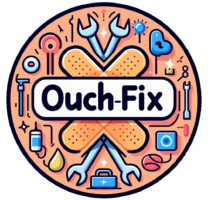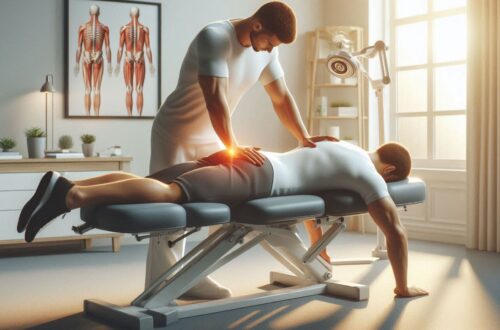Especially when it hits out of nowhere after an injury, surgery, or sudden illness. That sharp, stabbing feeling? Doctors call it acute pain. It doesn’t usually last long, but it can definitely throw your life off track. The good news? There are plenty of ways to get relief—and yes, doctors approve most of them.
So, what do the experts actually recommend to ease the pain quickly? Let’s break it down.
What Is Acute Pain?

Acute pain is your body’s way of saying, “Hey, something’s not right!” It comes on fast and doesn’t stick around too long—usually just a few days to a few months. Once the problem heals, the pain usually goes away too.
What Causes Acute Pain?
- Injuries:
Twisted ankles, broken bones, or even something small like a paper cut can trigger acute pain. It’s your body’s natural alarm system. - Surgery:
Cutting through tissue (which happens during surgery) obviously causes pain while healing. - Illness or Infection:
Conditions like strep throat or kidney stones bring pain along for the ride.

Also Read: What Common Misconceptions About Pain Management do Experts Highlight?
Why You Should Treat Acute Pain Early
Toughing it out sounds brave, but it’s not always smart. Ignoring acute pain can make things worse—turning it into long-term (chronic) pain, messing with your sleep, your mood, and slowing your recovery. Doctors recommend tackling it early to stop that snowball effect.
Doctor-Approved Ways to Treat Acute Pain

Medications You Can Buy at the Pharmacy
- Acetaminophen (like Tylenol):
Great for mild to moderate pain. It’s easy on the stomach and doesn’t cause bleeding like some other meds. - NSAIDs (like ibuprofen or naproxen):
These reduce both pain and swelling—ideal for things like sprains or sore joints.
Prescription Medications
- Opioids:
These are only for serious pain (like after surgery or a major injury). They work well but can be addictive, so doctors use them short-term. - Muscle Relaxants:
Help calm down muscle spasms, especially in your back or neck. - Nerve Pain Meds (like gabapentin or pregabalin):
These are helpful when the pain comes from nerve issues.
Other Ways to Relieve Pain Without Meds

- Physical Therapy:
Movement really is medicine. A therapist can guide you through stretches and exercises to help reduce pain and improve movement. - Ice and Heat:
Ice helps with swelling. Heat eases stiffness. Simple but effective. - Rest and Elevation:
Let your body heal by taking it easy. Lifting an injured area (like your leg) can help reduce swelling too. - Massage or Manual Therapy:
Helps loosen tight muscles and boost circulation. Plus, it feels amazing.

Also Read: What Role does Nutrition Play in Pain Management According to Experts?
Alternative Options to Try
- Acupuncture:
Tiny needles may sound weird, but many people find major relief from this ancient technique. - Chiropractic Care:
Adjusting your spine can help with back or neck pain by easing pressure on nerves. - Herbal Supplements:
Things like turmeric, ginger, or willow bark may help—but talk to your doctor first. “Natural” doesn’t always mean safe.
Mind-Body Techniques That Work

- Cognitive Behavioral Therapy (CBT):
Pain isn’t just physical. The way you think about it can make it worse—or better. CBT helps you mentally manage pain. - Meditation and Deep Breathing:
Relaxing your body calms your nervous system and helps take the edge off. - Guided Imagery:
Sounds strange, but imagining your pain melting away actually helps some people feel better.
Injections and Other Medical Treatments
- Nerve Blocks:
Doctors inject medicine to block pain signals—works almost instantly. - Corticosteroid Injections:
These reduce inflammation, especially helpful in joints like your knees or shoulders. - Trigger Point Injections:
For stubborn muscle knots that just won’t chill—quick and focused relief.
Personalized Pain Plans
What works for one person might not work for another. That’s why doctors create custom pain management plans based on your health, the cause of your pain, and your lifestyle.

Also Read: What are the Top Pain Management Tips Recommended by Physiotherapists?
Adjusting As You Go
Finding the right pain relief takes some trial and error. Doctors often tweak the treatment plan—changing doses or trying new therapies—to find what works best with the fewest side effects.
Play It Safe

Never double up on medications or mix them without asking your doctor. Read labels carefully, especially with over-the-counter drugs. And be super cautious with opioids—they’re strong and should be used carefully.
When to See a Specialist
If your pain is really bad, lasts more than a few days, or just isn’t going away—even after trying different treatments—it’s time to call in a specialist.
The Future of Pain Relief Looks Bright
We’re talking smart pills, wearable tech, and AI-powered treatments. Healthcare is moving toward pain relief that’s more precise, more personal, and more effective than ever.




